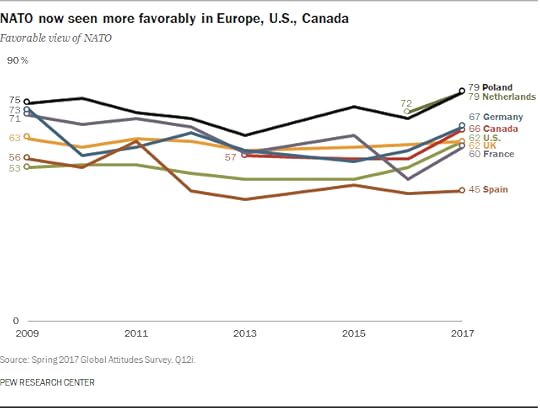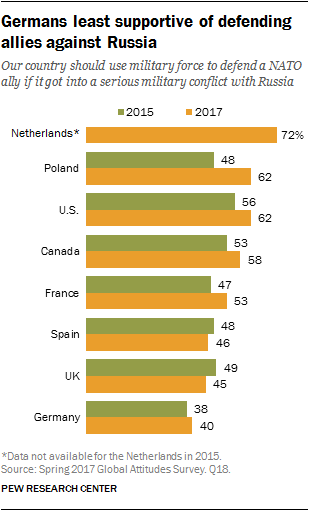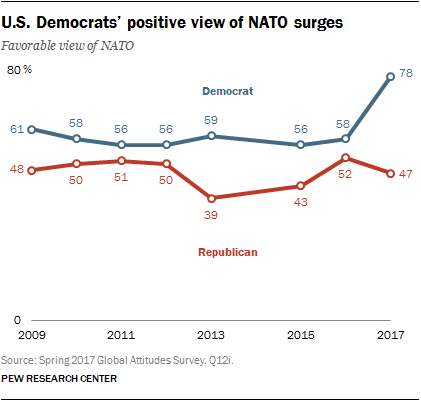Pew: NATO Approval on the Rise
President Trump is heading to a NATO summit in Brussels this week, looking to patch things up with an alliance he once infamously denounced as “obsolete.” According to a new Pew Research Center survey, growing majorities on both sides of the Atlantic beg to differ with that assessment:
In both North America and Europe, views of the North Atlantic Treaty Organization (NATO) have generally improved over the past year. Today, roughly six-in-ten Americans hold a favorable opinion of the security alliance, up from just over half in 2016, according to a new Pew Research Center survey. Majority support for NATO has also strengthened in Canada, Germany, the Netherlands and Poland. And after a steep decline a year ago, most French again express a favorable view of the security alliance.

Sometimes, the simplest explanation is the most compelling: the uptick in NATO support correlates with Trump being elected. Intentionally or otherwise, Trump’s doubts about an alliance that had previously been taken for granted seems to have put the fear of God into our ill-armed European allies—especially those most in danger from a resurgent Russia.
Indeed, the Pew data suggests that countries whose publics perceived Russia as a serious threat were also more willing to come to other NATO allies’ defense. That helps explain why Poland is near the top of the pack, while more distant countries like Spain and the UK, which feel less threatened by Moscow, lagged behind. Germany, meanwhile, presents a unique case. While 67% of Germans now look favorably on NATO, only 40% support defending allies against a Russian attack—a paradox likely explained both by pro-Russia sentiment among the German people and Berlin’s well-established aversion to defense commitments.

The Pew data also shows how Trump has shaped domestic views on NATO. Democrats registered a 20-point swing in favor of NATO, in a clear partisan reaction against Trump’s campaign trail positions. The effect on Republicans was smaller but still notable, with a 5% decrease in GOP support for NATO. It is telling, however, that Republicans have had more dubious views of the alliance for some time now—a sign that Trump’s skepticism about NATO had more buy-in from the Republican base than other polling has suggested.

Overall, 66% of Europeans surveyed still trust the U.S. to come to their defense in the event of a Russian attack, and 62% of Americans believe the U.S. should do so. President Trump is expected to explicitly endorse NATO’s Article 5 in Brussels tomorrow, putting an end to lingering anxiety about his commitment to the alliance. That’s all to the good—an alliance needs to be credible in order to be useful as a deterrent against revisionist powers.
Still, one has to wonder: will allies have been rattled enough to follow through on their commitments to spending 2 percent of GDP on defense even after President Trump has stopped playing bad cop?
Peter L. Berger's Blog
- Peter L. Berger's profile
- 227 followers



